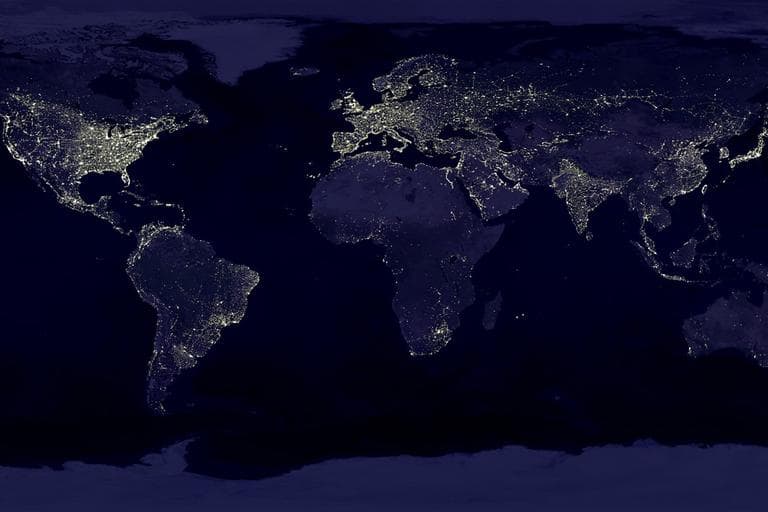Advertisement
Seven Billion And Counting
ResumeThe human population is just about to reach seven billion. Yikes! We talk to the experts — Polyannas, Cassandras and in between — about how many of us Mother Earth can handle.

The UN says next week, maybe on Halloween, the world population will hit seven billion humans. That’s a whole lot of homo sapiens. It took us forever to hit the first billion, just after 1800. We’ve added four billion in just the last fifty years. Now, seven.
Can the planet manage this population of us? Doomsayers have long been wrong, but now some of the very things that saved us – fossil fuels – are croaking the environment. So what about eight billion? Nine? Ten?
This hour On Point: seven billion humans, and the planet we share.
-Tom Ashbrook
Guests
Mark Lynas, author of The God Species: Saving The Planet In The Age Of Humans. He is a visiting research scholar at Oxford University’s School of Geography and the Environment.
Joe Romm, a physicist and climate expert, he is a senior fellow at the Center for American Progress and editor of the blog climateprogress.org. He served in the U.S. Department of Energy in the Clinton Administration.
Highlights
Some day this month, the estimated population of the world will top seven billion. But the numerical success of the human species has caused major strained on the planet and human infrastructure.
“We are pushing against the ability of the planet to feed the seven billion people that we have,” said Joe Romm, a physicist and climate expert editor of the blog climateprogress.org. “Food prices have been soaring. We’ve had the second major food price spike in the past three years, and now food prices are as high globally as they’ve been since the late 1970s.”
We’re not facing mass starvation, cautioned Romm. But adapting to the new realities will mean a change in behavior for the world’s most developed—and wasteful – countries.
“We’re certainly going to see a population of nine billion by 2050 – and that’s a mid-range estimate,” said Mark Lynas, author of The God Species: Saving The Planet In The Age Of Humans.
The challenge for the future, he said, won’t just be feeding those people, but feeding them even as they grow richer and demand better and more resource-intensive foods from a planet that is being seriously impacted by climate change.
Despite the daunting challenges, Lynas noted, “we need to have a fairly strong dose of humility when we make these long-term projections, particularly because we don’t know what technologies will be doing.”
From Tom's Reading List
New York Times "Because censuses are infrequent and incomplete, no one knows the precise date — the Census Bureau puts it somewhere next March — but there can be no doubt that humanity is approaching a milestone."
The Atlantic "The United Nations Population Fund estimates that in one week, on October 31, 2011, the world's population will reach 7 billion. Just 200 years ago, there were only 1 billion people on the planet, and over the next 150 years, that number grew to 3 billion. But in the past 50 years, the global population has more than doubled, and the UN projects that it could possibly grow to 15 billion by the year 2100."
Practical Ethics "One example is the rapidly growing information economy. If someone makes a hammer, only a few people get the benefit, but if someone records a new song, writes a computer program, or invents a new technology, everyone can benefit. These activities thus produce more value the more people we have. With twice as many people doing jobs like these, we could all get roughly twice the benefits (more art, culture, science, technology), or they could work roughly half as many hours. A larger population thus has the potential to make life much better, so long as we can find the resources to support it."
The Economist "In 1950 the whole population of the earth—2.5 billion—could have squeezed, shoulder to shoulder, onto the Isle of Wight, a 381-square-kilometre rock off southern England. By 1968 John Brunner, a British novelist, observed that the earth’s people—by then 3.5 billion—would have required the Isle of Man, 572 square kilometres in the Irish Sea, for its standing room. Brunner forecast that by 2010 the world’s population would have reached 7 billion, and would need a bigger island."
This program aired on October 27, 2011.
